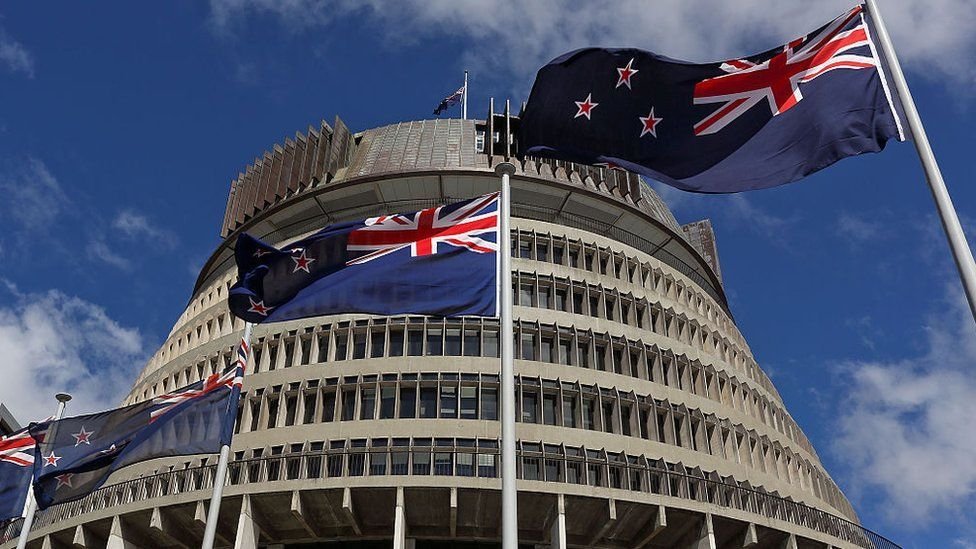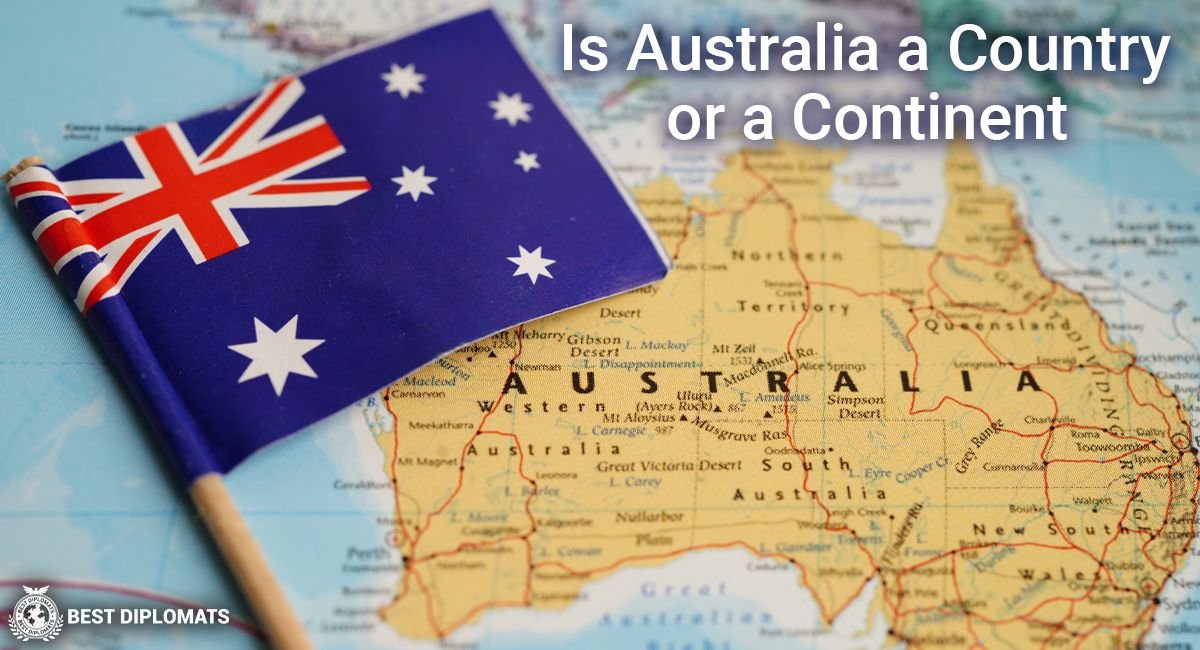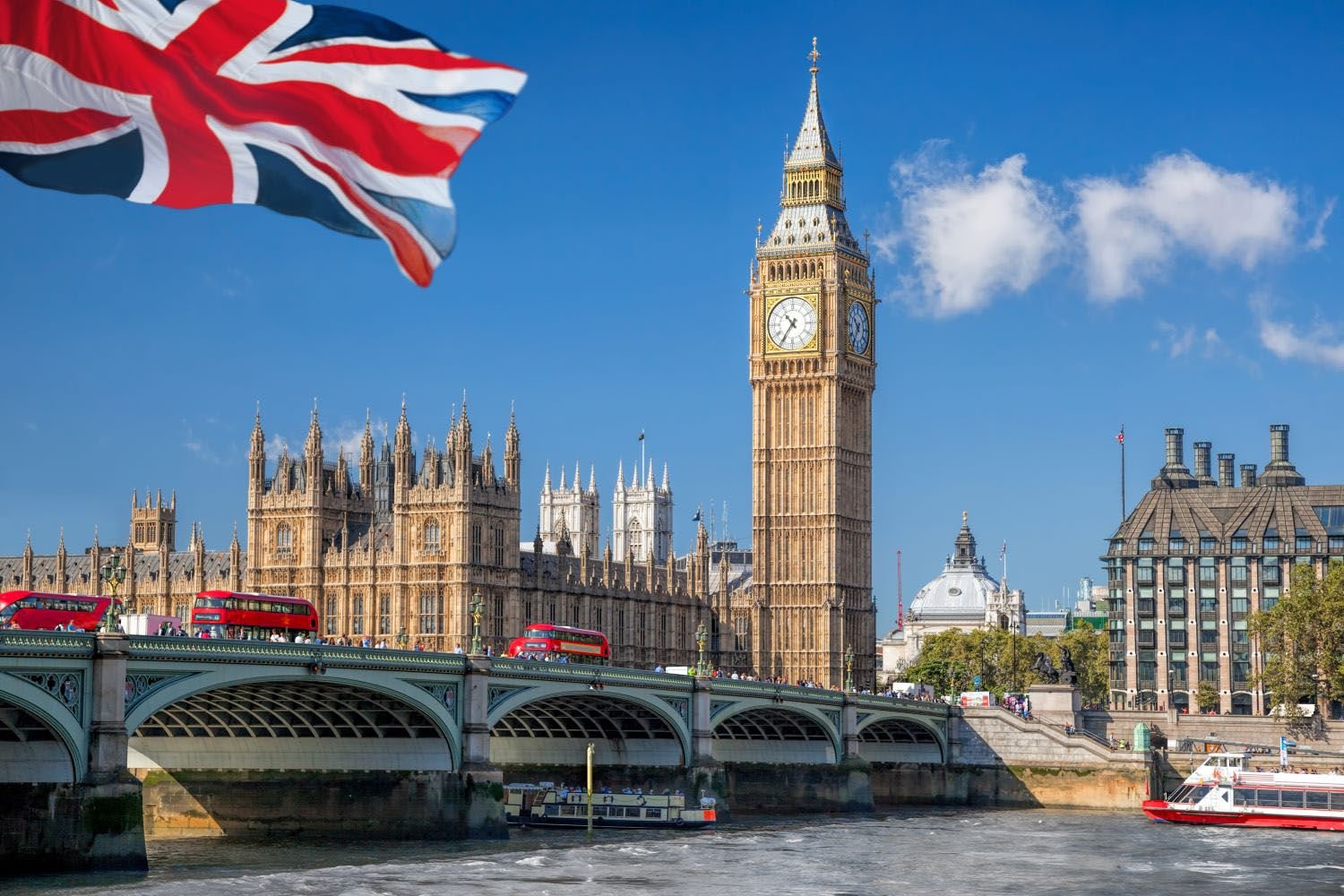Study Abroad Service

Study Abroad Service
Explore the world with Lam Aid Study Abroad!
Embark on a transformative academic journey with Lam Aid's Study Abroad service. Explore the world while pursuing your educational goals, immersing yourself in diverse cultures, and gaining invaluable international experience. New Zealand, with its stunning landscapes, world-class education system, and vibrant multicultural society, offers a unique and enriching study experience.
Our team of seasoned professionals is here to guide you through every step, from selecting the perfect destination to seamlessly navigating the application process. Whether you dream of studying in bustling metropolises, tranquil countryside settings, or renowned academic institutions, Lam Aid helps you turn your aspirations into reality. Expand your horizons, build lifelong connections, and cultivate a global perspective with Lam Aid Study Abroad.
Our Study Visa Services
1. UK Study Visa
Visit to study
You can visit the UK for up to 6 months to:
- study at an accredited institution (this includes English language courses)
- do a short piece of research that’s relevant to your course overseas
- do an ‘elective’ - an optional additional placement if you’re studying medicine, veterinary medicine and science, nursing, midwifery, or dentistry
- sit an entrance exam, retake an exam or course module, or do a PhD oral exam (a viva)
- do an unpaid clinical attachment if you’re a graduate of a medical, dental, or nursing school
- take the Objective Structured Clinical Examination (OSCE) test or the Professional and Linguistic Assessment Board (PLAB) test
You should:
- check you meet the basic eligibility requirements for a Standard Visitor and any relevant extra eligibility requirements listed below
- prepare any required documents that prove your eligibility
- check if you need a visa to visit the UK
- apply for a Standard Visitor visa online - if you need one
To study or research certain subjects at the postgraduate level or above, you may need to get an Academic Technology Approval Scheme (ATAS) certificate before you start your course or research.
If you’re visiting to study at an accredited institution
You must prove that:
- you’ve been accepted onto a course provided by an accredited UK institution
- the course is no more than six months long (unless it’s a distance learning course)
- The accredited UK institution cannot be an academy or state-funded school.
Distance learning courses
If you’re doing a distance learning course, your course can last longer than 6 months. This is because most of your study will happen outside of the UK.
You can visit the UK to do certain activities as part of your course, for example:
- attend induction weeks
- do face-to-face intensive learning
- have progress checks
- sit exams or assessments
If you want to study for more than six months
You’ll need to apply for either a:
- Short-term study visa - for English Language courses up to 11 months
- Student visa - for courses run by licensed student sponsors
- Child Student visa - to study at an independent school if you’re between 4 and 17 years old
If you’re visiting to do a short piece of research
You must prove that:
- you’re at least 16 years old
- you’re already enrolled on a course overseas that is the equivalent of a UK degree
- you’ve been accepted by a UK higher education institution to take part in research that’s relevant to the course you’re studying overseas
You can visit for up to 6 months to do your research.
Documents you must provide
You’ll need to provide confirmation from your overseas course provider that the research or research tuition is part of, or relevant to, the course you’re doing overseas.
If you’re visiting to do an elective
You must prove that you’re:
- at least 16 years old
- already enrolled on a course overseas that is the equivalent of a UK degree - the course must be in medicine, veterinary medicine and science, nursing, midwifery or dentistry
- doing an elective at a UK higher education institution as part of your course
You can visit for up to 6 months to do your elective.
Documents you must provide
Your UK higher education provider must give written confirmation that you will not be treating patients or being paid for the elective.
If you’re visiting to do an unpaid clinical attachment or dental observer post
If you’re an overseas graduate from a medical, dental, or nursing school, you can do an unpaid clinical attachment or dental observer post for up to six months.
If you want to stay longer than six months, you must pass the PLAB test and apply to stay in the UK.
You must not treat patients.
Documents you must provide
You must provide written confirmation:
- of your clinical attachment or dental observer post-offer
- that you’ve not done a clinical attachment or dental observer post in the UK before
If you’re taking the OSCE or PLAB test
You can visit for up to 6 months to take the OSCE or PLAB test.
If you do not pass the PLAB test, you can apply to stay in the UK for a further six months to retake it.
If you pass the PLAB test, you can apply to stay in the UK for an unpaid clinical attachment or dental observer post. You can stay in the UK for up to 18 months in total.
Documents you must provide
You must provide a letter from the Nursing and Midwifery Council confirming your OSCE test registration.
You’ll need a letter from the General Medical Council confirming your PLAB test registration.
Please book an appointment for an assessment, counseling, admission, and support for the entire process.
2. New Zealand Study Visa
The New Zealand Study Visa, officially known as a student visa, allows international students to study in New Zealand at approved educational institutions. This visa enables international students to pursue academic programs, language courses, or other educational activities in New Zealand.
Application Procedure:
- Receive Offer of Place:
- Obtain an offer of a place or acceptance letter from a recognized New Zealand educational institution.
- Ensure the institution is approved to enroll international students.
- Check Visa Type:
- Determine whether you need a student visa based on the duration of your intended study program.
- Prepare Required Documents:
- Gather the necessary documents for your visa application, which typically include:
- Offer of place letter from the New Zealand institution.
- Visa application form (INZ 1012).
- Passport-size photos.
- Passport with at least three months validity beyond your intended stay.
- Proof of financial ability to cover tuition fees and living expenses.
- Health and medical certificates (if required).
- Complete Visa Application:
- Fill out the visa application form accurately and completely.
- Submit the completed form and the required documents to the nearest New Zealand embassy, consulate, or visa application center.
- Pay Visa Fee:
- Pay the visa application fee as required by the New Zealand immigration authorities.
- Fees may vary depending on the visa type and your nationality.
- Medical and Police Checks:
- Undergo any required medical examinations and provide evidence of good health.
- Obtain police clearance certificates from your home country or any other country where you have lived for 12 months or more (if required).
- Submit Application:
- Submit your visa application in person or by mail to the appropriate New Zealand visa processing center.
- Ensure all required documents are included, and the application form is correctly filled out.
- Wait for Processing:
- Wait for the visa processing to be completed by the New Zealand immigration authorities.
- Processing times may vary depending on the visa type, your nationality, and other factors.
Precautions:
- Application Timeliness:
Apply for your New Zealand student visa well before your planned travel date to allow for sufficient processing time.
- Document Accuracy:
Ensure all documents submitted are accurate, complete, and in the required format to avoid delays or rejection.
- Financial Preparation:
Ensure you have sufficient funds to cover tuition fees, living expenses, and other costs of studying in New Zealand.
3. Australia Study Visa
The Australia Study Visa, formally known as the Student Visa (subclass 500), allows international students to study full-time in registered courses at recognized educational institutions in Australia. This visa enables students to pursue various levels of education, including English language courses, vocational education and training (VET), higher education, and postgraduate research programs.
Application Procedure:
Receive Confirmation of Enrollment (CoE):
Obtain a Confirmation of Enrollment (CoE) or Letter of Offer from a registered Australian educational institution for the course you intend to study.
Check Eligibility:
Ensure you meet the eligibility requirements for the Student Visa (subclass 500), including academic qualifications, English language proficiency, health, and character requirements.
Prepare Required Documents:
- Confirmation of Enrollment (CoE) or Letter of Offer from the Australian institution.
- Genuine Temporary Entrant (GTE) statement.
- Passport-size photos.
- Passport with at least six months validity.
- Proof of financial capacity to cover tuition fees, living expenses, and return airfare.
- Create an ImmiAccount:
- Wait for the Department of Home Affairs to complete the visa processing.
- Processing times may vary depending on the volume of applications and other factors.
Visa Grant: - Once your visa application is approved, you will receive notification of the visa grant.
- Check your ImmiAccount for the visa grant notification letter and visa grant number.
4. China Study Visa
The China Study Visa, officially known as the X1 Visa or X2 Visa, allows international students to study in China at designated educational institutions. This visa enables international students to pursue academic programs, language courses, or other educational activities in China.
Application Procedure:
- Receive Admission Offer:
- Obtain an admission offer or acceptance letter from a recognized Chinese educational institution.
- Ensure the institution is authorized to enroll international students.
- Check Visa Type: Determine whether you need an X1 Visa (for long-term study over 180 days) or an X2 Visa (for short-term study of 180 days or less).
- Prepare Required Documents: Gather the necessary documents for your visa application, which typically include:
- Admission notice from the Chinese institution.
- Visa application form (Form JW201 or Form JW202).
- Passport-size photos.
- Passport with at least six months validity.
- Proof of financial ability to cover tuition fees and living expenses.
- Health certificate (may be required for X1 Visa applicants).
- Complete Visa Application:
- Fill out the visa application form accurately and completely.
- Submit the completed form and the required documents to the Chinese embassy or consulate in your home country or country of residence.
- Pay Visa Fee:
- Pay the visa application fee as required by the Chinese embassy or consulate.
- Fees may vary depending on the visa type and your nationality.
- Attend Visa Interview (if required):
- Some applicants may be required to attend an interview at the Chinese embassy or consulate.
- Be prepared to answer questions about your study plans and provide additional documentation if requested.
- Submit Application:
- Submit your visa application in person or by mail to the Chinese embassy or consulate.
- Ensure all required documents are included, and the application form is correctly filled out.
- Wait for Processing:
- Wait for the Chinese embassy or consulate to complete the visa processing.
- Processing times may vary depending on the embassy, consulate, and other factors.
- Collect Visa:
- Once your visa application is approved, collect your visa and any accompanying documents from the Chinese embassy or consulate
- Check the visa validity dates and any additional conditions.
- Arrival in China:
- Upon arrival in China, present your passport with a valid study visa to immigration officials.
- Follow any additional entry procedures or requirements as instructed by immigration authorities.
- Precautions:
- Application Timeliness:
- Apply for your China study visa well before your planned travel date to allow for sufficient processing time.
- Document Accuracy: Ensure all documents submitted are accurate, complete, and in the required format to avoid delays or rejection.
- Financial Preparation: Ensure you have sufficient funds to cover tuition fees, living expenses, and other costs of studying in China.
- Health Requirements: Obtain any required health certificates or medical examinations as specified by the Chinese embassy or consulate.
- Compliance with Regulations: Familiarize yourself with the visa regulations and requirements of China and your home country to ensure compliance.
5. Canada Study Visa
The Canada Study Visa, also known as a Canadian study permit, allows international students to study at designated learning institutions (DLIs) in Canada. This visa is designed to facilitate educational opportunities for students from around the world and contribute to Canada's diverse academic community.
Application Procedure:
- Receive Letter of Acceptance:
- Obtain a letter of acceptance from a designated learning institution (DLI) in Canada.
- Ensure the Canadian government recognizes the institution.
- Check Eligibility:
- Review the eligibility criteria for a Canadian study permit.
- Ensure you meet the requirements related to academic qualifications, financial capacity, and health conditions.
- Prepare Required Documents: Gather the necessary documents for your study permit application, including:
- Letter of acceptance from a DLI.
- Proof of identity (passport).
- Proof of financial support to cover tuition fees, living expenses, and return transportation.
- Immigration medical examination (if required).
- Police clearance certificate (if required).
- Apply Online or Paper Application:
- Complete the study permit application form (IMM 1294) either online through the Immigration, Refugees and Citizenship Canada (IRCC) website or by paper.
- Pay the application and any biometric fees (if applicable).
- Biometrics Appointment (if required): Schedule and attend a biometrics appointment at a designated location (if biometrics are required based on your nationality).
- Submit Application: You can submit your complete application along with all required documents either online or by mail to the appropriate visa office.
- Wait for Processing:
- Wait for the visa office to process your study permit application.
- Processing times vary depending on the volume of applications and other factors.
- Medical Examination and Police Clearance (if required):
- Undergo a medical examination by an approved panel physician (if required).
- Obtain a police clearance certificate from your home country or any other country where you have lived for six or more consecutive months (if required).
- Receive Decision:
- The visa office will notify you once a decision is made on your study permit application.
- If approved, you will receive your study permit and a letter of introduction.
- Arrival in Canada:
- Upon receiving your study permit and letter of introduction, you can travel to Canada.
- Upon arrival, present your study permit and letter of introduction to the Canada Border Services Agency (CBSA) officer.
- Precautions:
- Start Early: To allow for sufficient processing time, begin the application process well before your intended start date.
- Document Accuracy: Ensure all documents submitted are accurate and complete to avoid delays or rejection.
- Financial Planning: Plan and budget for tuition fees, living expenses, and other costs associated with studying in Canada.
- Healthcare Coverage: Familiarize yourself with healthcare coverage options in Canada and ensure adequate insurance coverage during your stay.
- Compliance with Conditions: Understand and comply with the conditions of your study permit, including any restrictions on working or studying.
6. US Study Visa
The process for applying for a US study visa involves several steps, including:
Eligibility:
Check if you are eligible for a US visa.
Documents:
Gather the required documents, such as:
- A valid passport with at least six months remaining after your stay
- A printed copy of the online application form, DS-160
- A SEVIS fee receipt
- An original copy of your interview appointment letter
- Form I-20 from the college you will be attending
- A receipt confirming payment of the visa fee
- A bank statement from the past three years showing that you have enough money to cover your first year's expenses, such as tuition, living costs, and health insurance
- Pay or salary slips
- Original mark sheets or provisional certificates
- A recent passport-sized photograph
- A clear scanned image of your signature
Application:
Apply for the visa online.
Interview:
Attend your visa interview, which is the final step in the process and will determine your eligibility. During the interview, you may be asked questions in English about why you chose the school and what you plan to do after the program.
Approval:
Wait for the approval status of your application.
Please book an appointment for an assessment, counseling, admission, and support for the entire process.





